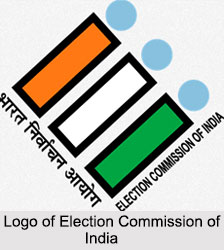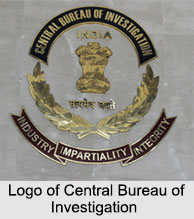 Constitutional bodies in India are the permanent or semi-permanent organizations, within the machinery of the government. These organizations gain power directly from the Constitution of India and have extensive administrative functions to perform. They are of national importance and help in the effective functioning of the government. India is a Socialist, Secular, Democratic Republic country and after Independence, the introduction of independent bodies as parts of the government helped the country. Either the chief of the respective constitutional bodies are appointed by the President of India or the Prime Minister serves as the chairman. Some of the constitutional bodies in India are described below.
Constitutional bodies in India are the permanent or semi-permanent organizations, within the machinery of the government. These organizations gain power directly from the Constitution of India and have extensive administrative functions to perform. They are of national importance and help in the effective functioning of the government. India is a Socialist, Secular, Democratic Republic country and after Independence, the introduction of independent bodies as parts of the government helped the country. Either the chief of the respective constitutional bodies are appointed by the President of India or the Prime Minister serves as the chairman. Some of the constitutional bodies in India are described below.
Comptroller and Auditor General of India
Comptroller and Auditor General of India is an authority established by the Constitution of India. He is provided with the power of auditing all receipts and expenditure of the Government of India and the state governments. In order to ensure independence of the office of the Comptroller and Auditor General from the executive government, his position remains permanent.
Election Commission of India
 Election Commission of India is a permanent constitutional body, which is known as the guardian of elections in the country. It was established on 25th of January, 1950, in accordance with the Constitution. The commission is responsible for the superintendence, direction and control of the entire election process. This commission ensures that the elections are conducted in a free and fair manner. The commission has the duty of distributing a model code of conduct among the political parties and candidates.
Election Commission of India is a permanent constitutional body, which is known as the guardian of elections in the country. It was established on 25th of January, 1950, in accordance with the Constitution. The commission is responsible for the superintendence, direction and control of the entire election process. This commission ensures that the elections are conducted in a free and fair manner. The commission has the duty of distributing a model code of conduct among the political parties and candidates.
National Development Council
National Development Council (NDC) or the Rashtriya Vikas Parishad is an apex body for decision making and deliberations on development matters in India. Presided over by the Prime Minister, National Development Council was set up on 6th of August, 1952 to strengthen and mobilize the efforts and resources of the nation in support of the plan, to promote common economic policies in all vital spheres and to ensure balanced and rapid development of all parts of the country. It is an extra-constitutional and non-statutory body.
Union Public Service Commission
Union Public Service Commission (UPSC) was set up on 1st of October, 1926. It was given autonomous status both at federal and provincial levels for ensuring unbiased recruitment to All India Services (AIS) and making appointments to the services of the Union. The commission conducts an examination called the Civil Service Examination (CSE). The All India Services Act of 1951 authorizes the Government of India to make rules and regulations for recruitment and conditions of service of the persons appointed to the different ranks of All India Service.
Finance Commission
 Finance Commission was established on 22nd of November, 1951, under Article 280 of the Indian Constitution by the President of India. It was formed to define the financial relations between the centre and the state. It has various functions to perform like allocating net proceeds of taxes between the centre and the states and determining factors governing Grants-in Aid to the states.
Finance Commission was established on 22nd of November, 1951, under Article 280 of the Indian Constitution by the President of India. It was formed to define the financial relations between the centre and the state. It has various functions to perform like allocating net proceeds of taxes between the centre and the states and determining factors governing Grants-in Aid to the states.
Planning Commission of India
Planning Commission of India was an organization in the Government of India. It was neither created from the Constitution nor statute, but was an arm of the Union Government. It was established on 15th of March, 1950, with Prime Minister, Jawaharlal Nehru as the chairman. It used to formulate India`s Five-Year Plans and also performed other functions. The Planning Commission reported directly to the Prime Minister of India. It is important to note that the Planning Commission of India was dissolved on 17th of August, 2014 and was replaced by NITI Aayog or the Policy Commission. NITI Aayog, a policy brain trust has been set up by the Bharatiya Janata Party (BJP) Government.
Other Constitutional Bodies in India
Other constitutional bodies in India include Central Vigilance Commission, Central Bureau of Investigation, National Human Rights Commission, National Commission for Women, National Commission for Backward Classes, National Commission for Minorities, National Commission for Scheduled Tribes, etc.






